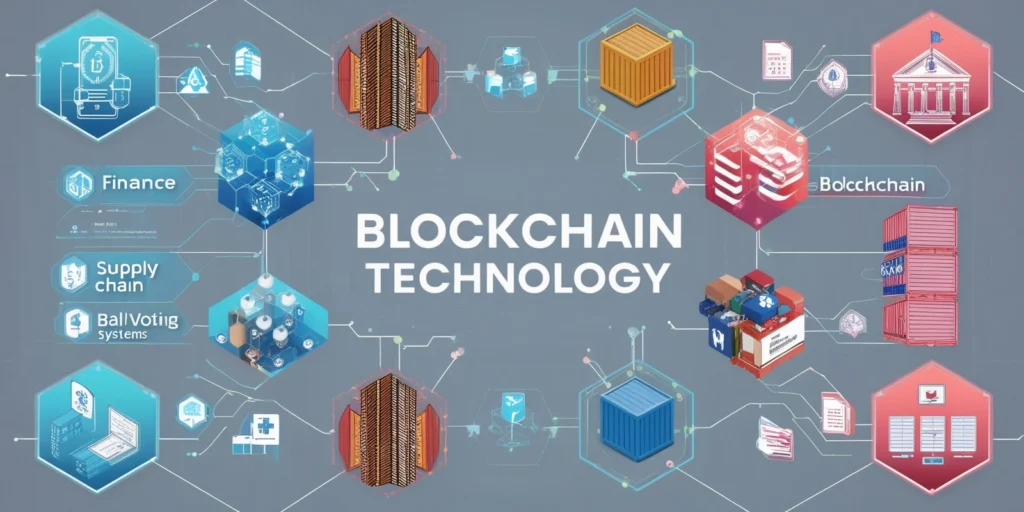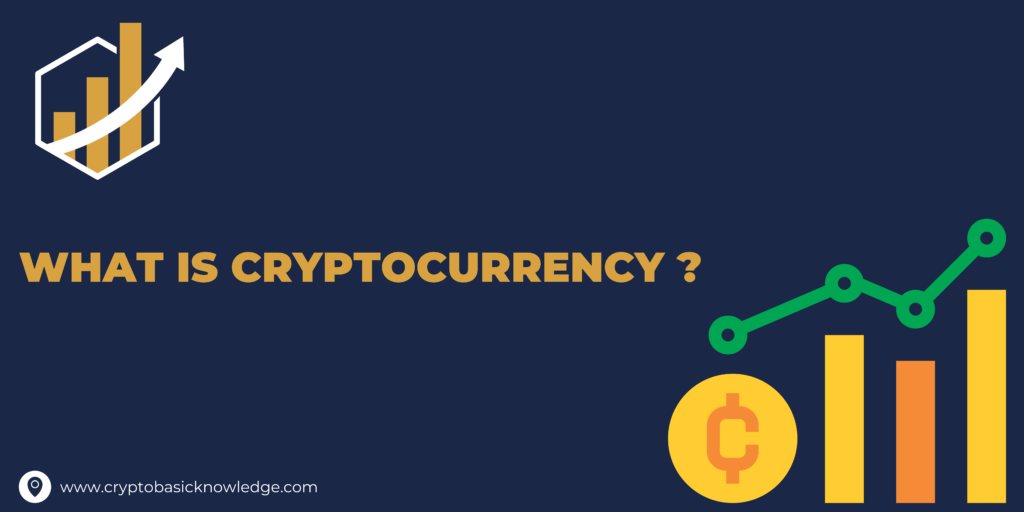blockchain technology has turned into a fundamental piece of various industries. From finance and medical care to supply chain the board and polling form systems, blockchain offers a secure and transparent strategy for going through transactions and putting away data. Assuming you’re hoping to get everything rolling with blockchain technology yet don’t know where to start, this article will give you the essential data and assets you need to comprehend and use this imaginative technology.

1. What is blockchain technology?
Blockchain technology is a cutting-edge innovation that has achieved huge changes in different industries. At its centre, blockchain is a decentralised, distributed ledger technology that securely records transactions across a network of computers. Dissimilar to traditional databases that are put away on a central server, blockchain stores data on a network of interconnected computers, making it tamper-proof and exceptionally secure.
Each block in a blockchain contains a rundown of transactions that are confirmed by network members known as diggers. When a block of transactions is confirmed, it is added to the chain in a straight, sequential request. This chain of blocks frames the blockchain, which fills in as a transparent and changeless record of all transactions that have occurred inside the network.
One of the basic components of blockchain technology is its decentralized nature. This genuinely suggests that there is no single individual in control or authority directing the network, making it impenetrable to oversight and control. Transactions are endorsed through a consensus part, for instance, proof of work or check of stake, which ensures the reliability and security of the network.
Blockchain technology is generally well known for its application in cryptocurrencies like Bitcoin and Ethereum. These digital currencies work on blockchain networks, engaging secure and transparent shared transactions without the necessity for intermediaries like banks or portion processors. Blockchain has transformed how we contemplate money and finance, giving a decentralized alternative to traditional banking systems.
Past cryptocurrencies, blockchain technology has a great many expected applications across different industries. For instance, blockchain can be utilised to follow supply chains, confirm items, smooth out casting ballot systems, and even digitise resources like land and craftsmanship. By utilising the security and transparency of blockchain, associations can lessen misrepresentation, increase proficiency, and further develop trust among partners.
2. Grasping the advantages of utilising blockchain technology.
Blockchain technology offers a huge number of advantages that make it an appealing choice for businesses and people hoping to change their tasks. One of the critical benefits of blockchain technology is its capacity to provide a secure and changeless record of transactions. By utilising advanced cryptographic techniques, blockchain guarantees that once an exchange is added to the ledger, it can’t be altered or erased. This guarantees transparency and confidence in the system, making it ideal for industries that require elevated degrees of security and precision, like finance, healthcare, and supply chain management.

One more advantage of blockchain technology is its decentralised nature. Traditional centralised systems depend on a solitary person in charge, making them powerless against hacking, extortion, and control. Conversely, blockchain works on a network of computers known as nodes, every one of which stores a duplicate of the ledger. This decentralised design dispenses with the requirement for intermediaries, lessens the risk of data breaches, and works on the general effectiveness of transactions. It likewise considers more prominent transparency and responsibility, as all gatherings approach similar data and can verify the validity of transactions freely.
Notwithstanding security and decentralisation, blockchain technology offers massive expense savings for businesses. By dispensing with the requirement for outsider intermediaries and smoothing out the confirmation cycle, blockchain diminishes exchange expenses and handling times. This can bring about significant savings for associations, especially in industries that depend on complex and tedious transactions, for example, cross-line installments or supply chain operations. Now and again, blockchain technology can likewise mechanise tedious assignments and lessen the requirement for manual mediation, further inflating cost effectiveness and efficiency.
Besides, blockchain technology can possibly change industries by empowering new plans of action and income streams. Smart contracts, which are self-executing contracts with the conditions of the arrangement composed into code, consider computerised and secure transactions without the requirement for intermediaries. This opens up a universe of opportunities for industries like land, insurance, and protected innovation, where policies are intricate, tedious, and inclined to questions. By utilising blockchain technology to execute smart contracts, businesses can smooth out their tasks, lessen costs, and set out new open doors for development and innovation.
Generally speaking, the advantages of utilising blockchain technology are various and extensive. From improved security and decentralisation to cost savings and new business opportunities, blockchain can possibly reform the manner in which we manage transactions and trade. By grasping these advantages and investigating the potential outcomes of blockchain technology, businesses and individuals can gain new degrees of effectiveness, transparency, and confidence in their activities.
3. Picking the right stage or network to get everything rolling.
Blockchain technology has become progressively well known lately, with numerous industries embracing it for different applications. Assuming you’re hoping to get everything rolling with blockchain technology, one of the main choices you’ll have to make is picking the right stage or network, regardless.

There are a few choices accessible with regards to blockchain stages, each with its own exceptional elements and capacities. One of the most notable stages is Ethereum, which is a decentralised stage that empowers designers to fabricate and send smart contracts and decentralised applications (dApps). Ethereum is broadly utilised in the cryptocurrency space and has an enormous and dynamic local area.
Another famous choice is Hyperledger, a cooperative undertaking facilitated by the Linux Establishment that focuses on creating venture-grade blockchain arrangements. Hyperledger offers a range of devices and structures for building permissioned blockchain networks, which are intended for use inside associations and businesses.
In the event that you’re keen on building decentralised applications for explicit industries, you might need to consider stages like Corda or Majority, which are custom-made for use in areas like, for example, finance and supply chain management.
While picking a blockchain stage, it’s critical to consider factors like scalability, security, and simplicity of improvement. A few stages might be more qualified for limited-scope projects, while others are intended to deal with high volumes of transactions. It’s likewise essential to consider whether you need to fabricate a public blockchain, which is available to anybody to take an interest in, or a private blockchain, which is limited to a select group of members.
As well as picking the right stage, you’ll likewise have to decide whether you need to construct your own blockchain network or join a current one. Building your own network gives you full command over the stage and its elements; however, it likewise requires a lot of technical mastery and assets.
Alternatively, you can join a current blockchain network, for example, the Bitcoin or Ethereum networks, which are available to anybody to take an interest in. Joining a current network can be a faster and simpler method for getting everything rolling with blockchain technology, yet you’ll have to comply with the network’s guidelines and conventions.
Notwithstanding which stage or network you pick, it’s vital to find out more about the fundamental standards of blockchain technology. This incorporates understanding ideas like consensus mechanisms, smart contracts, and cryptographic keys. There are numerous assets accessible online to assist you with finding out about blockchain technology, including tutorials, courses, and online communities.
All in all, picking the right stage or network is a significant initial phase in beginning with blockchain technology. Whether you’re hoping to fabricate decentralised applications, investigate new business opportunities, or essentially look further into this thrilling technology, there are stages and networks accessible to suit your requirements. By setting aside some margin to explore and pick the right stage for your task, you’ll have the option to plunge into the universe of blockchain technology with certainty and excitement.



Pingback: 3 Key Differences Between Blockchain and Traditional Databases -